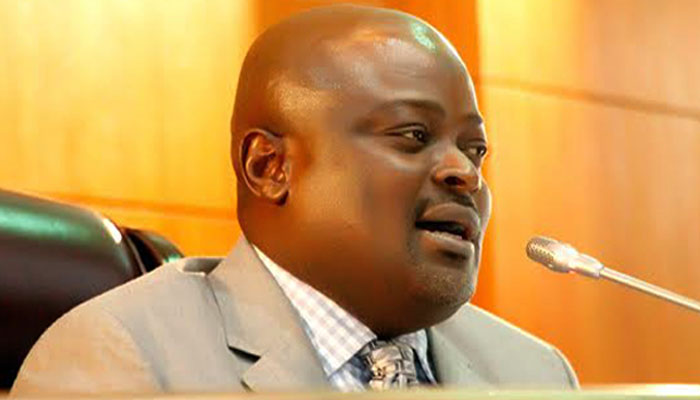The Environmental Rights Action/Friends of the Earth Nigeria (ERA/FoEN) has described suggestions by the Speaker of Lagos State House of Assembly, Mudashiru Obasa, that privatisation is the answer to the water needs of Lagosians as a “betrayal of the trust reposed on him by the electorate”.

Obasa had, while speaking during a media parley to mark the first year of the Assembly last week, stated that the Lagos State Water Corporation (LSWC) needs chemicals as well as new and modern equipment to make it deliver on its mandate of providing Lagosians clean water. He added however that the state does not have the kind of resources to ensure this happens, hence will subscribe to privatisers taking over the LSWC.
The lawmaker also revealed that a conducive environment was being put in place for foreign partners to come in, and argued that water was currently being sold to Lagosians at “below price”.
Reacting to Obasa’s comments, ERA/FoEN Deputy Director, Akinbode Oluwafemi, said: “The proposal of the Speaker on an issue of such magnitude which bothers on the rights of Lagos citizens to a free gift of nature is not satisfactory and also reveals the depth of financial deprivation the water sector has been subjected to owing to the perception that water must be commodified for it to be more widely and readily available.
“This unfortunate suggestion adds to the plethora of conflicting statements from the Lagos State Government on its plans to ensure access to water as a human right. We recall that the Commissioner for Environment, Dr. Babatunde Adejire, had said last year said that the issue of Public Private Partnership (PPP) in the water sector was ‘null and void’. The Permanent Secretary, Office of the Chief of Staff to the governor, Abiodun Bamigboye, had similarly explained that the state was not considering privatisation in the water sector. A few days after, it came as a rude shock to us that Governor Akinwunmi Ambode sang a different tune, stressing the state would privatise.”
Oluwafemi noted that the Speaker’s suggestion points to an attempt to legitimise water privatisation, playing on the faulty notion that private investors will turn around the Lagos water sector.
“We want to make the Speaker understand that the private sector does not bring capital investments. If they make any investment at all, they push the burden to the people while raking illicit profits. This happened in Manila, the Philippines, Nagpur in India and other countries where privatisation in the PPP model was experimented,” he stated, adding:
“We fault the claim that Lagos does not have the funds needed to deliver on its water mandate. On the contrary, we feel that the state is not prioritising water as it does security, road construction and other obligations it is delivering on at the moment.”
He insisted that examples across the globe show that remunicipalisation is the answer to the failed PPPs promoted by the World Bank, revealing that Paris and Cochabamaba are the latest cities to take back their water from privatisers.
His words: “The water wars of Cochabamba is one example that the Lagos government must learn from. Bolivians rejected the deal to hand over their utility rights to US-based Bechtel Corporation following rate hikes which made it impossible for people to afford water. Lagosians are now being primed for a similar experience if we are to take the Speaker by his remarks that we are paying ‘below price’.
“Like we had said time and again, there are no alternatives to a democratically-governed water sector in privatisation. The people must determine how water is managed. The solution has never and will never be in giving our public assets to privatisers whose only interest is skimming us off profits. We are open to putting forward our proposals on how to ensure this happens. Privatisation in any guise is unacceptable. We reject it and Lagos residents reject it.”
